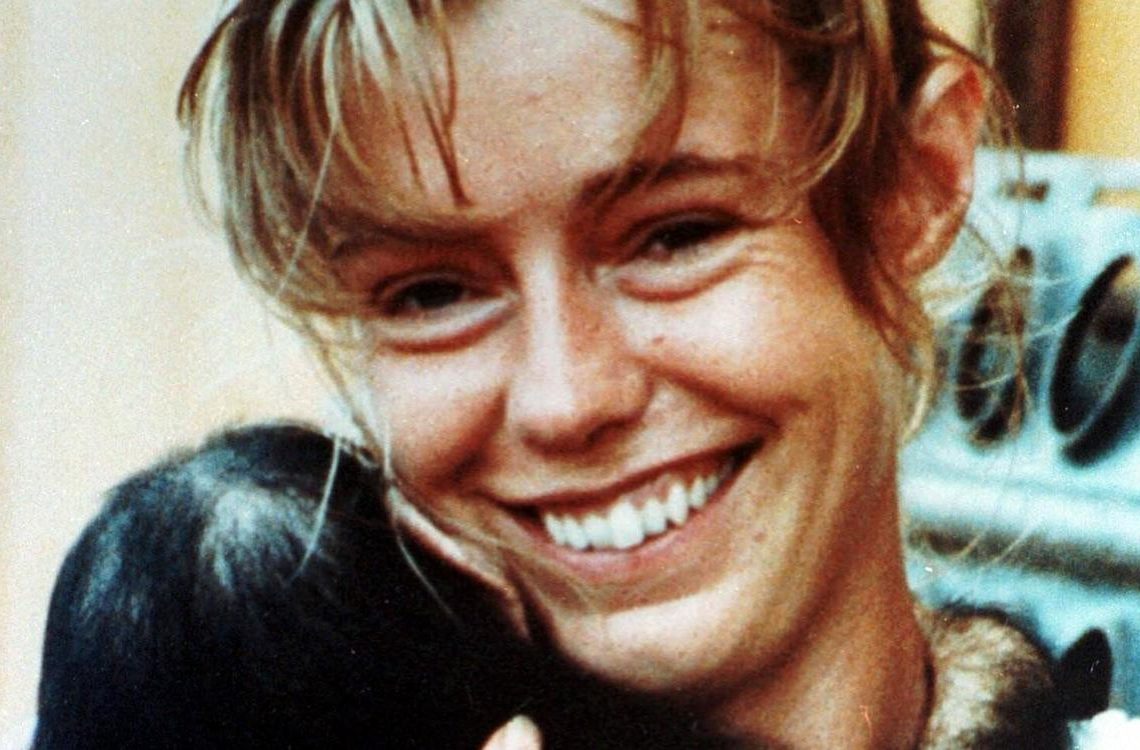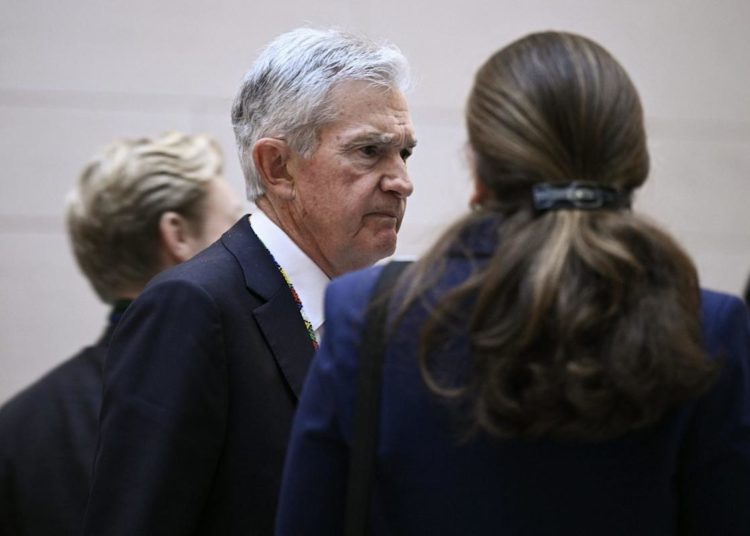The son of the former Kenyan president has been implicated in the murder of a young British woman in newly unearthed evidence.
Julie Ward was butchered in the Maasai Mara game reserve in September 1988 aged 28.
Most of her body was burned, but part of her left leg, pieces of her jaw and her skull were found intact.
Whilst officials initially tried to suggest that she had died by suicide, been eaten by animals or even struck by lightning, it quickly became clear she had been murdered.
She became a cause célèbre as her millionaire father relentlessly pursued her killers, but the exact circumstances of Julie’s death have never been solved.
Now, for the first time, her family has revealed evidence in the case that shows the Metropolitan Police spoke to a witness in 2011 who offered a major breakthrough.
The witness gave an account of events that puts Jonathan Moi, son of Daniel Arap Moi, the former Kenyan president, in the frame for the murder.
This newly unearthed statement represented a significant advance in the murder investigation and reignited the Ward family’s hopes that Julie’s killer might face justice. They have spent more than three decades trying to solve Julie’s murder, and say that this is the strongest evidence yet that puts Mr Moi in the area where the crime was committed at the time.
However, in a move that has been heavily criticised by the family, the Met kept the statement hidden without fully investigating the claims.
The Ward family believes that this is because of a cover-up orchestrated by the Foreign Office (FCDO) and involving the Met, to preserve good relations with Kenya.
At the time of Julie’s death, Kenya was one of Britain’s key defence allies in Africa.
Whilst a cover-up by Britain has never been established, The Telegraph can disclose that the evidence was kept out of the public domain, with documents stating the key witness statements were reserved strictly for the use of British police.
This was because of the potential risk of reprisals if the contents were “divulged to the wrong person or at the wrong time”.
As a result, it remained under lock and key in a London police facility and was only shared with the Wards after Mr Moi’s death from pancreatic cancer in 2019.
The witness statement was made by a former official at a safari camp in the Masai Mara where Julie was found dead. The witness said that Mr Moi stayed with them at around the time Julie was missing, contradicting his previous evidence to police that he had been nowhere near the scene of the crime.
The family are making the revelation public now because they have tried and failed to bring a complaint against the Metropolitan Police for its alleged failures.
 Julie’s brother Bob Ward told The Telegraph it is “unthinkable that those statements with such vital information have been locked away in a safe in Lewisham for all of these years”, and that the chance to achieve justice for Julie may now have been missed.
According to the testimony from the camp official, Mr Moi and a small party contacted the camp to make a booking in September 1988, around the time that Julie first went missing. The group allegedly arrived late one evening and left unexpectedly the next morning in a way that “did not make sense” to the camp worker.
The disclosure is significant because Mr Moi had previously denied rumours of his involvement in Julie’s murder, or being anywhere near the area.
He told Kenyan police in 1997 that he had been at one of his farms, more than 150 miles away from the Masai Mara, “throughout” that September when Julie died. He also said that he had “never been at the Masai Mara game reserve”.
The Ward family has long suspected that Mr Moi was involved in Julie’s death, but before the camp official’s statement it was only based on rumour and evidence from someone who was himself an admitted killer.
Former Detective Chief Superintendent Phil Adams, whose operation in Kenya obtained the statement, said the camp official’s account was “finally something tangible and factual which put Mr Moi in the vicinity of Julie’s murder, and supported a theory that he and his cronies were responsible”.
He added that his personal view “is that Jonathan Moi did go out that night… and he’s taken advantage of her [Julie]. I think he’s either responsible for her death or, having taken advantage of her, he’s got people to dispose of the body”.
The Met confirmed in a recent letter to the Ward family that in 2018, when the most recent investigation into Julie’s murder was made “inactive”, Mr Moi was the “one remaining person of interest”.
By that point, the Met had been in possession of the camp official’s statement for seven years. The Ward family did not obtain the statement until 2020, and they have now shared it with the Telegraph.
But the Wards claim that too little was done to interrogate the information in the statement whilst Mr Moi was still alive.
Mr Adams told the Telegraph that they were unable to investigate as normal, because they had told the witness they would not pass the information to the Kenyan police – but at the same time, the terms of the Met’s engagement in Kenya meant that the Kenyan police had to approve all their plans.
“[We said] we’ll keep it under lock and key there until you are comfortable with us using it openly in an investigation, and that’s how I left it when I retired,” Mr Adams said.
He added that his officers wanted to obtain a DNA sample from Mr Moi to compare against evidence, but that in the end, they did not make the request to the Kenyan police because they feared they would have to explain why and that this would expose their informant.
Mr Adams was not in a position to disclose the statements after his retirement, but it is believed that the Met did not share them with the Kenyan Police.
The early investigations
Julie Ward’s murder was one of the most notorious unsolved mysteries of the late eighties, comparable to the disappearance of estate agent Suzy Lamplugh in terms of the way it captured the public imagination.
That was largely down to John Ward, Julie’s father, who spent more than £2m of the fortune he amassed as a hotelier trying to bring her killers to justice.
In his search for answers, he exposed a litany of failures by authorities in Kenya, who initially appeared reluctant to acknowledge there had been a murder at all.
The first pathologist to inspect Julie’s remains said in his draft report that her bones were “clean cut”, implying that she had been cut with an implement. However, Kenya’s most senior pathologist, Dr Jason Kaviti, altered the document before it could be given to the Ward family so that it said her bones were cracked and torn. This suggested wild animals were to blame instead.
The amendment made Mr Ward suspicious, and – with his trust in the authorities shaken – he took it upon himself to investigate his daughter’s murder. He was relentless, and over the following years and decades, he helped to ensure that there was a second inquest in Suffolk, and investigations by four different police forces. There were also two murder trials of three different people, including the then head warden at the Masai Mara game reserve, but all the suspects were acquitted.
In 2004, the government that succeeded president Moi admitted that there was a potential cover-up.
The new justice minister, Kiraitu Murungi, said that Mr Ward’s investigations did not get an “adequate response from the Kenyan authorities at the time”, and that there “appears to be some prima facie evidence of deliberate obstruction” by some officials.
What has perhaps been more surprising is the battles that the Ward family have faced with authorities in Britain.
In the days after Julie’s death, John Ward was invited to a meeting with two men at the British High Commission. One of the men attempted to persuade him that Julie had been struck by lightning and eaten by hyenas. It later emerged that this man was an MI6 informant and the other man an MI6 agent.
Some time later, in 1990, Scotland Yard officers were brought in to look at Julie’s death. Their enquiries led to the arrest of two rangers who stood trial for murder in 1992 but were acquitted.
The Ward family now believes that the Met deliberately bungled their investigations in the 90s in an attempt ‘to pervert the course of justice’.
The relatives have spent the last two years pursuing a formal complaint against the Met Police in the hope that they would persuade the force to acknowledge its failures and reopen parts of the investigation.
In a letter handed to the police and seen by The Telegraph, they said: “Justice has not been served to the Ward family, let alone Julie. Our family have been seriously let down by the Metropolitan Police force of past years.
“We believe, due to the actions of the Metropolitan Police Service officers, a murderer remained free until his dying day and justice was not served for Julie or the Ward family. This is unacceptable to us.”
The Wards added: “We strongly believe these actions were orders or instructions from higher up the chain of command, namely the FCDO.”
The Metropolitan Police have declined to reinvestigate the Wards’ allegations that its officers participated in a cover-up, saying that they have previously been cleared and that its resources should be used elsewhere.
A Met spokesman told The Telegraph that it had suspended the investigation in 2018 because it had exhausted all lines of enquiry. “This decision was not taken lightly and our thoughts remain with Julie’s family, who were updated accordingly.
“We have been clear that detectives would consider any new information provided to them to determine whether it represented a new and significant line of enquiry.”
A Government spokesman expressed sympathy for the Ward family and said that they “deeply regret” the fact that nobody has been brought to justice in the case.
“The Foreign Office has always absolutely refuted any allegations of a cover-up in this historic case,” they added.
As part of their complaint, the Wards handed over a dossier of evidence of what they perceive as multiple failures over the years to probe Julie’s death properly.
They strongly criticised former Detective Chief Superintendent Ken Thompson for his failure to visit the site of Julie’s remains during a four-day scoping exercise in Kenya in 1990. Mr Thompson said in his report that he had been unable to go because of ground conditions.
They also questioned why Mr Thompson directed Kenyan police to Julie’s jeep, without ensuring a forensic examination himself, and believe that he did so in the knowledge that it might hold valuable evidence. When other Met officers went to Kenya later that year, the jeep had been dismantled and potential forensic evidence lost.
Mr Thompson has since died, but at an inquest in 2004, he strongly defended the robustness of his work.
The Wards also criticised the detectives who took over from Mr Thompson, citing a 2004 independent investigation by Lincolnshire Police. It said “the New Scotland Yard investigation into the murder of Julie Ward was poorly led, under-resourced and incompetent”, that “significant lines of enquiry were ignored” and “forensic opportunities were missed”.
Despite these criticisms, the independent investigation found there was “insufficient evidence to support the allegation of a cover-up”.
Former Detective Chief Superintendent Graham Searle, who was the senior investigating officer on the ground in 1990, told the Telegraph: “Under the circumstances, we did the very best job we possibly could. And I stress that under the circumstances. It wasn’t the easiest place to work.”
His deputy, David Shipperlee, added that allegations of a Met cover-up were “utter nonsense” and that he doesn’t believe the investigation was “incompetent”.
The independent investigation was not able to get to the bottom of another disturbing finding: that a witness statement made by John Ward was altered to water down his criticism of the Kenyan authorities.
The Wards believe it was done at the behest of the FCDO to preserve good relationships with the Kenyans.
At the time of Julie’s death, Margaret Thatcher’s Britain donated considerable sums of foreign aid to Kenya. Kenya also hosted – and continues to host – a huge training ground used to train British Army personnel.
The British Army Training Unit Kenya, 200 miles north of Nairobi, is large enough to train whole battalions and was used to ready personnel for the Falklands War.
The Wards believe that it would have been profoundly damaging to Britain’s relationship with Kenya if the son of its president had been implicated in Julie’s murder.
They also firmly believe that Jonathan Moi was directly or indirectly responsible for her death, although this remains unproven.
In their complaint to the Met, they have accused the force of making deliberate mistakes because it suited Britain “to help a political ally hide a murderer”.
The first time Mr Ward heard Jonathan Moi’s name in connection with Julie’s death was soon after her body was found, when a clothes seller in the Masai Mara pressed a note into Mr Ward’s hand. It bore the words: “The man you are looking for is Jonathan Moi Toroitich” [his Kenyan name].
Some years later, he heard Mr Moi’s name again from a man called Valentine Uhuru Kodipo, who secured asylum in Denmark on the basis that he had been part of a paramilitary unit. He alleged he had witnessed several atrocities, including Julie being tortured and bludgeoned to death with a club.
Mr Kodipo claimed Mr Moi was present, along with two other senior political figures in Kenya: Nicholas Biwott, a former cabinet minister, and Noah Arap Too, who was director of the then criminal investigation department. Mr Arap Too has previously said he was in London at the critical time. All three men are now dead, as is Mr Kodipo.
Mr Kodipo’s testimony emerged in 1993, and his asylum claim was approved, suggesting that at least some of his outlandish claims may have been seen as credible in some quarters.
However, questions have been raised about the reliability of his evidence, including by a member of the unit who said there was no record of Mr Kodipo. Mr Ward also believed he caught him in a lie and at one point dismissed him as a “fantasist” whose story was “nothing more than a brilliantly constructed pack of lies”.
Jonathan Moi responded to Mr Kodipo’s testimony with a statement claiming that he was not in the Masai Mara at the time of Julie’s death.
“Throughout the months of September 1988, I was at my farm in Eldama Ravine [more than 150 miles north of the Masai Mara]. I have a farm at Narok [a town relatively close to the Masai Mara], and on that alleged date of September 6, I was at my farm in Eldama Ravine. I would also state that I have never been at the Masai Mara Game Reserve, but at my farm in Narok,” he said.
He added that he had “nothing to do with…the disappearance of the late Julie Ward.”
The newly emerged witness statement from the former camp official offered a potential way to disprove Mr Moi’s alibi.
In a handwritten statement, the former camp official claimed that they had personally greeted Mr Moi when they arrived at around 10pm shortly after September 11 1988.
Julie’s remains were found on September 13, a week after she first disappeared. A post-mortem has suggested that she spent most of this missing week alive.
Mr Moi’s party allegedly left the next morning and never returned, which the camp official found “unusual”, the witness statement shows. One member of the party allegedly came back with an explanation a day or two later, claiming that they had got lost on their way to visit another one of Mr Moi’s farms far away – but the former camp worker said they found this reason “very odd”.
“[I] could not understand why they would have gone to [that farm] as it was on completely the opposite side of the Mara to our camp. It did not make sense for them to have booked our site,” the witness said.
Another source linked to the same camp also gave a statement, which can only be disclosed now, and provided letters from the first camp official, which corroborate some of the minor details.
For the Wards, these newly emerged documents shed some light on what may have happened to Julie. But the family is also frustrated that they have faced such a battle to get this far – and that the man they believe is responsible for her death will never face justice.
Listen to a special episode of the Daily T podcast about the murder of Julie Ward and her family’s fight for justice on the audio player in this article. You can also listen on Spotify, Apple Podcasts, or wherever you get your podcasts.
The post Former president’s son implicated in safari murder of British woman appeared first on The Telegraph.



